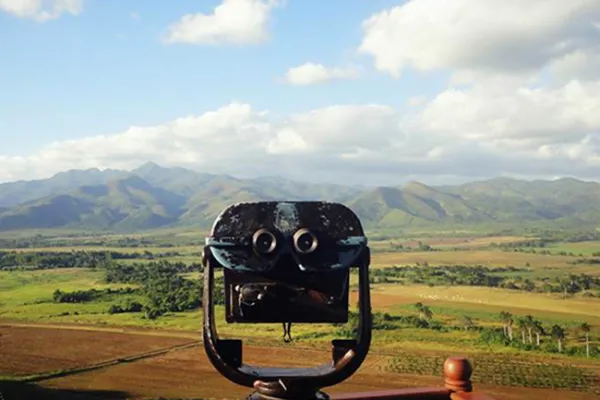Real-World Views: Students Share Lessons from Off-campus Studies
Campus Life

Published December 22, 2016
More than half of all Smithies study off campus for part of their time at the college. Each year, the Smith in the World Conference is a chance for students to share some of those experiences with fellow students, faculty and staff.
From studying at international universities, to participating in internships with nonprofits and businesses, off-campus learning is a vital part of a Smith education.
Below are brief interviews with three of the students who spoke at this year’s Smith in the World gathering in November.
Nashwa Al-sharki ’17
“Creative Solutions”
Rio de Janeiro
Praxis Summer Internship
Nashwa Al-sharki traveled to Rio this summer for a Praxis internship on studies of urban favelas in advance of the 2016 Summer Olympics—but the lessons she learned during her time in the city went well beyond that topic. Al-sharki, a sociology and Portuguese-Brazilian studies major, also gained insights about organizing that she has brought to her work this semester as president of Smith’s Middle East and North Africa Students Alliance (MENA).
“I was working with Catalytic Communities, writing for a website covering favelas and looking at the portrayal of favelas in the media. The organizational model at Catalytic Communities was that no one told us what we ought to do. They treated us like professionals, and sent us out to do research in the neighborhoods each day. We would come back to meetings and go around the room and talk about what we had done. It was a type of peer pressure, a way to get people to feel accountable. At Smith, I’ve been trying to model that form of organization. At our MENA meetings, we now begin with short presentations where everyone says what they’ve been working on and then we go over a shared list of tasks. It helps people feel they are part of a team. Our big goal is to organize a conference this spring on Afro-Arab relations.”
Marianna Januario ’17
“Volunteering With Refugee Resettlement and Immigration Legal Services”
Cedar Rapids, Iowa
Community Service
Marianna Januario’s interest in immigration issues started with her parents’ experience as immigrants from Brazil. Her parents became U.S. citizens three years ago, around the time Januario began thinking about college. This past summer, she volunteered with Catholic Charities in her family’s new hometown of Cedar Rapids, Iowa, helping a legal representative support immigrants and refugees. Januario, who is majoring in government at Smith, is now applying to law schools with hopes of becoming an immigration lawyer.
“The legal representative in our office was working with around 100 clients. One day I was in the Iowa Works unemployment office and someone asked for help with a green card. I gave him a card for Catholic Charities and then I got to see him later across a desk at our office—I got to see him getting help. The people we were working with weren’t focused on election debates over immigration. They were more focused on their own lives. Working with clients was actually enlightening. Hearing the stories of how they came here was sometimes hard. Some of them were undocumented immigrants, and others were refugees. But now that they are here, many are thriving. They’ve been able to bring other family members over and are doing things for themselves. They’ve really found a new life here.”
Claudia Deeg ’17
“Local Consultation in Environmental Conservation in Madagascar”
Nosy Komba Island
Study Abroad
During a semester in Madagascar last fall, Claudia Deeg created an independent study project to determine how effective protected marine areas are in conserving coral reefs. She visited nonprofits working on environmental issues and conservation sites and also interviewed local residents. Through her experience, Deeg was able to identify what she views as a serious flaw in work by conservation groups—one she hopes to work on solving. She has applied for a Fulbright Fellowship to support a research project in Zanzibar, Tanzania, on local involvement in environmental conservation following her graduation from Smith.
“I learned from speaking with locals living near a lemur sanctuary in Madagascar that although lemurs were destroying their crops, they were unable to hunt the lemurs because a foreign organization was protecting them. As a result, the locals were losing necessary food crops because they were too scared of being arrested for hunting lemurs. Many international or foreign-run conservation organizations in Madagascar are concerned with conserving the native biology, but pay little or no attention to how the local people are affected by the regulations they institute. Ultimately, engaging local people in environmental conservation is the only way to make these organizations effective and to guarantee that environmental protection does not come at the cost of human quality of life.”